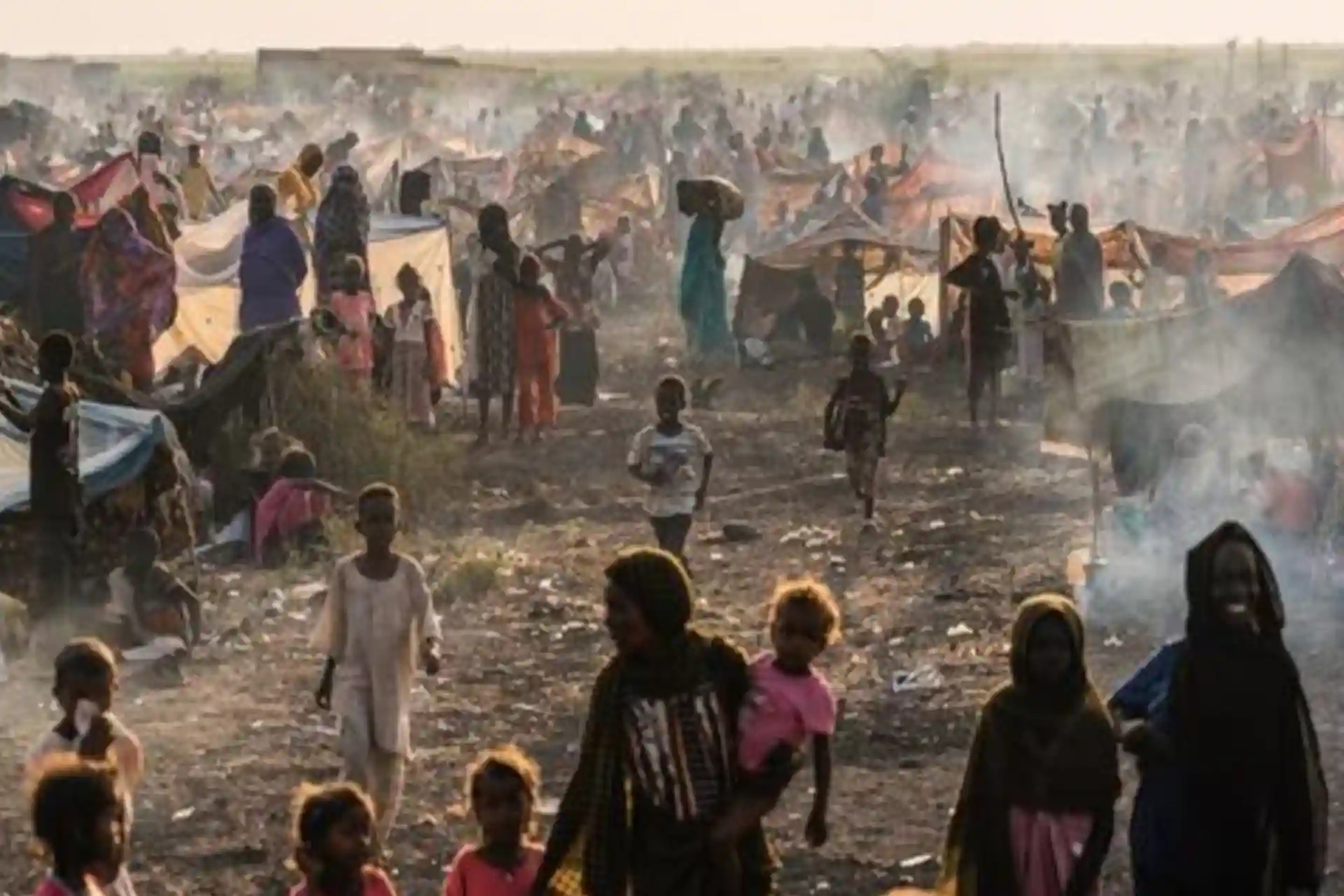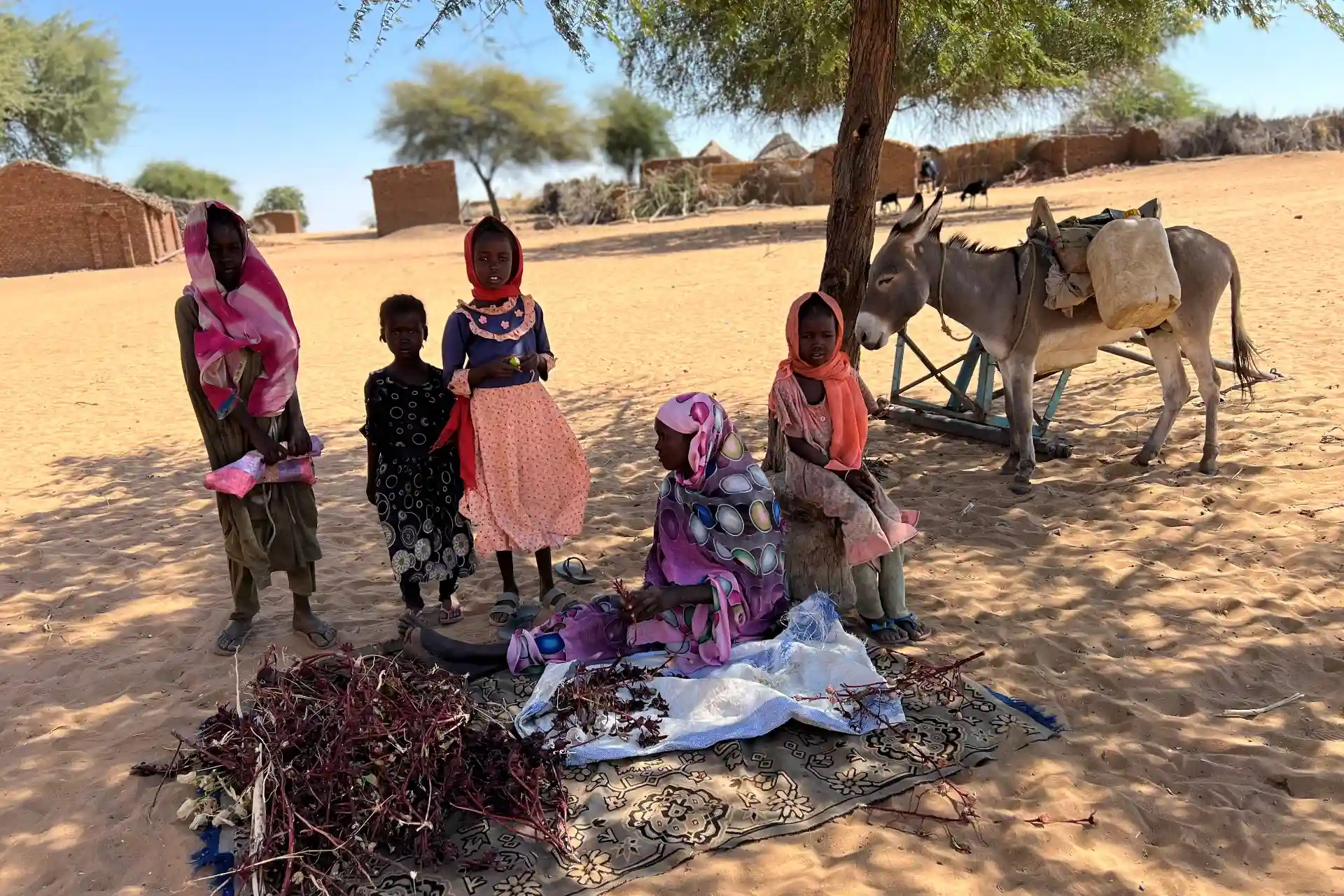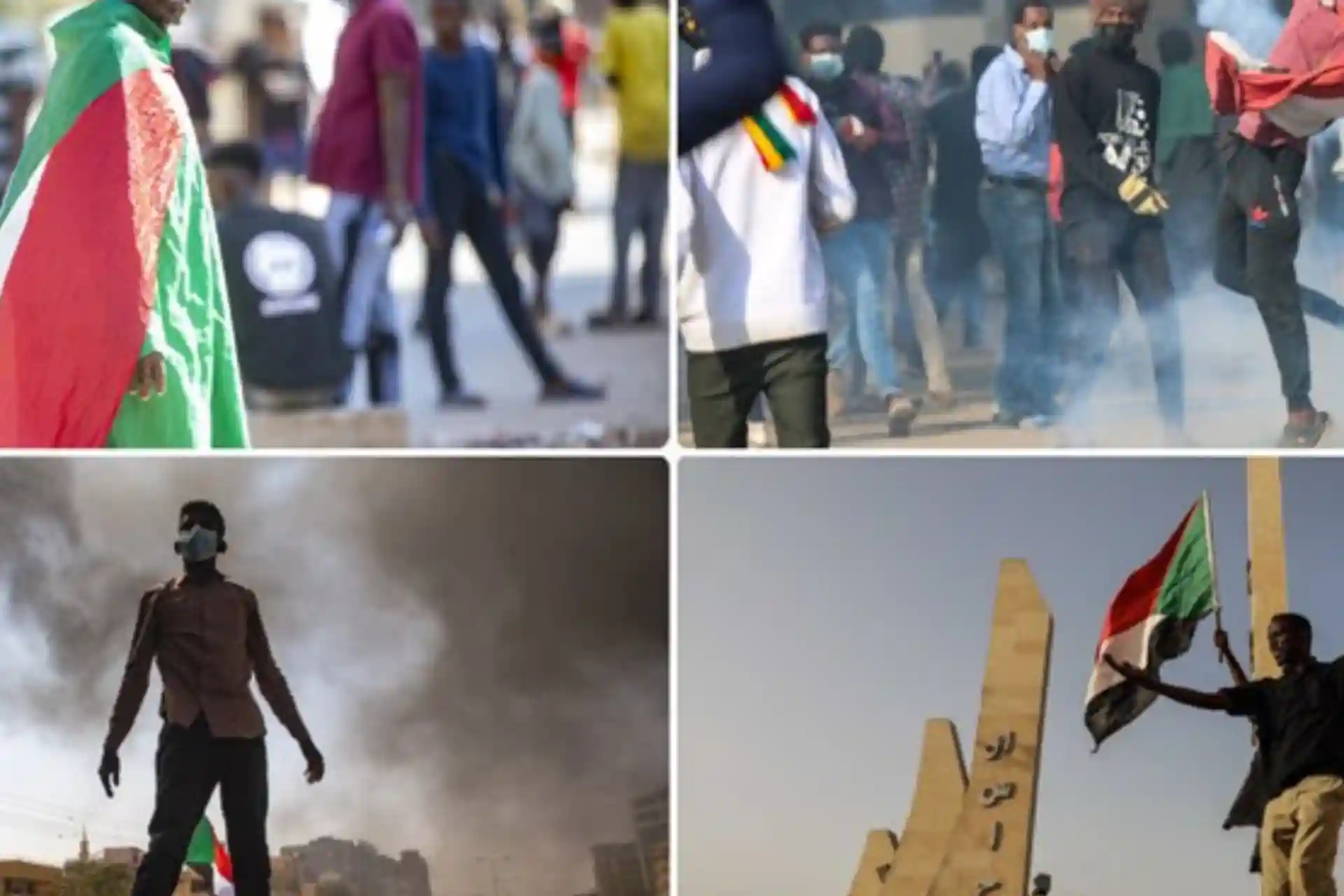The world is preoccupied with itself: Who cares about Sudan?
In the 2010s, the conflicts in Syria and Lebanon made occasional headlines, but the crisis in Yemen was largely forgotten. Unfortunately, Sudan has fallen off the radar this year, driven by conflicts in Gaza, Ukraine and Lebanon. In the coming year, governments and news agencies around the world must pay attention to the events in Sudan and think of new ways to give the Sudanese stories the attention they deserve. From an article by Tufail Hussein, director of British Islamic Relief .
Early last year, I traveled to Sudan to see firsthand the scale of the humanitarian crisis. What I saw shocked me.
Entire families are forced to survive on just one small meal a day, IDP (internally displaced persons) camps are overflowing with the influx, and people are telling horrific stories of violence and atrocities. But what struck me most was the lack of international attention.
The war in Sudan has caused the world's worst famine and internal displacement crisis. More than 11 million people, More than the combined population of London and Birmingham , were forced to abandon their homes and move to other places within the country .
Half of the country's population, 25.6 million people, are food insecure , meaning they don't know when their next meal will be. The Darfur region is facing famine as the war has driven farmers from their lands, destroyed markets and cut off humanitarian aid.
Nevertheless, the conflict began. A humanitarian crisis of this magnitude has received little international attention since April 2023. When I visited the IDP camps in Port Sudan and Gedaref , I did not encounter a single team of journalists . Twenty years ago, it would have been completely unimaginable that the Sudanese crisis would have been ignored to this extent.
Of course, the ongoing unrest across the country poses significant challenges for journalists, and local journalists who attempt to report on the crisis face significant risks. However, there have also been some excellent reports published in recent months.
However, it is crucial that the scale of coverage is commensurate with the scale of the events. Without media attention, the political, diplomatic, and humanitarian efforts that Sudan desperately needs may not materialize.
So why is Sudan struggling to stay in the spotlight? There are a number of different factors that are keeping Sudan out of the spotlight.
The world has become preoccupied with itself.
Unfortunately, I think that globally we have become so preoccupied with our own problems that we turn our backs on other people's problems . The global economic crisis of recent years has exacerbated poverty and suffering around the world, including in our own country, Britain.
At British Islamic Relief , our domestic programs are expanding year by year as we strive to alleviate the growing levels of poverty in our countries. Unfortunately, this means that the suffering of people in other countries is considered unworthy of our attention.
We have also seen how some media outlets have demonised refugees and asylum seekers trying to come to Britain. Who would have thought 30 years ago that we would turn our backs on people fleeing atrocities and human rights abuses?
Unfortunately, I think many of those suffering are being seen as "outsiders" who could threaten their livelihoods, as many here are struggling with an increasingly dire economic situation.
In the past decade, crises in Africa have struggled to gain attention. How many people know that Somalia has been suffering from a terrible drought?
Or the brutal conflict ravaging the Democratic Republic of Congo ? Today, the African continent is often stigmatized because harmful stereotypes have spread that humanitarian crises are commonplace there.
Such unfounded views, fueled by racism and unconscious (or conscious) misconceptions, have made it easy for Westerners to ignore the problems in Africa.
In fact, we have seen that the Sudanese themselves are the ones doing the most to care for other families affected by this crisis. Local communities have welcomed the internally displaced into their homes and shared food. Local community kitchens and youth-led groups have been the mainstay of humanitarian assistance so far, but they are struggling due to the scale of the crisis.
Political solutions
Global powers outside the continent are ignoring the UN arms embargo, fueling crises like the one in Sudan. Ignoring this issue is very damaging, because the less people care, the less pressure there is on political action. Most importantly, humanitarian aid will never be enough – political and diplomatic solutions are needed.
A lack of public understanding and awareness has contributed to the crisis. According to a survey by British Islamic Relief and Savanta, 70% of British adults know nothing about the current crisis in Sudan .
Finally, the current Sudanese conflict has worked to its detriment, as all the world's attention is currently focused on the dire crisis in Gaza. Since October 2023, Gaza has dominated the headlines of foreign news outlets, and with good reason.
What we are seeing in this region is truly tragic, as Israeli forces continue to commit atrocities upon atrocities against the Palestinian people. This does not mean that Gaza should receive less coverage. The people of Gaza are facing an unprecedented crisis, yet there is still no attempt to stop the fire. News agencies should not stop reporting on the devastation until the suffering of the Palestinians is over.
The global news agenda often struggles to cover multiple humanitarian events at once. Looking back to the 2000s, the crisis in Sudan's Darfur region was big news, while events in the Democratic Republic of Congo were largely ignored .
In the 2010s, the conflicts in Syria and Lebanon made occasional headlines, but the crisis in Yemen was largely forgotten. Unfortunately, Sudan fell off the radar this year, driven by conflicts in Gaza, Ukraine, and Lebanon.
In the coming year, governments and news agencies around the world should pay attention to events in Sudan and think of new ways to give the Sudanese stories the attention they deserve.
The role of international journalism is crucial and must be supported, as high-quality reporting can be the deciding factor in whether governments act with diplomatic and humanitarian solutions to resolve the Sudanese crisis.
Tufail Hussain , Director of British Islamic Relief



